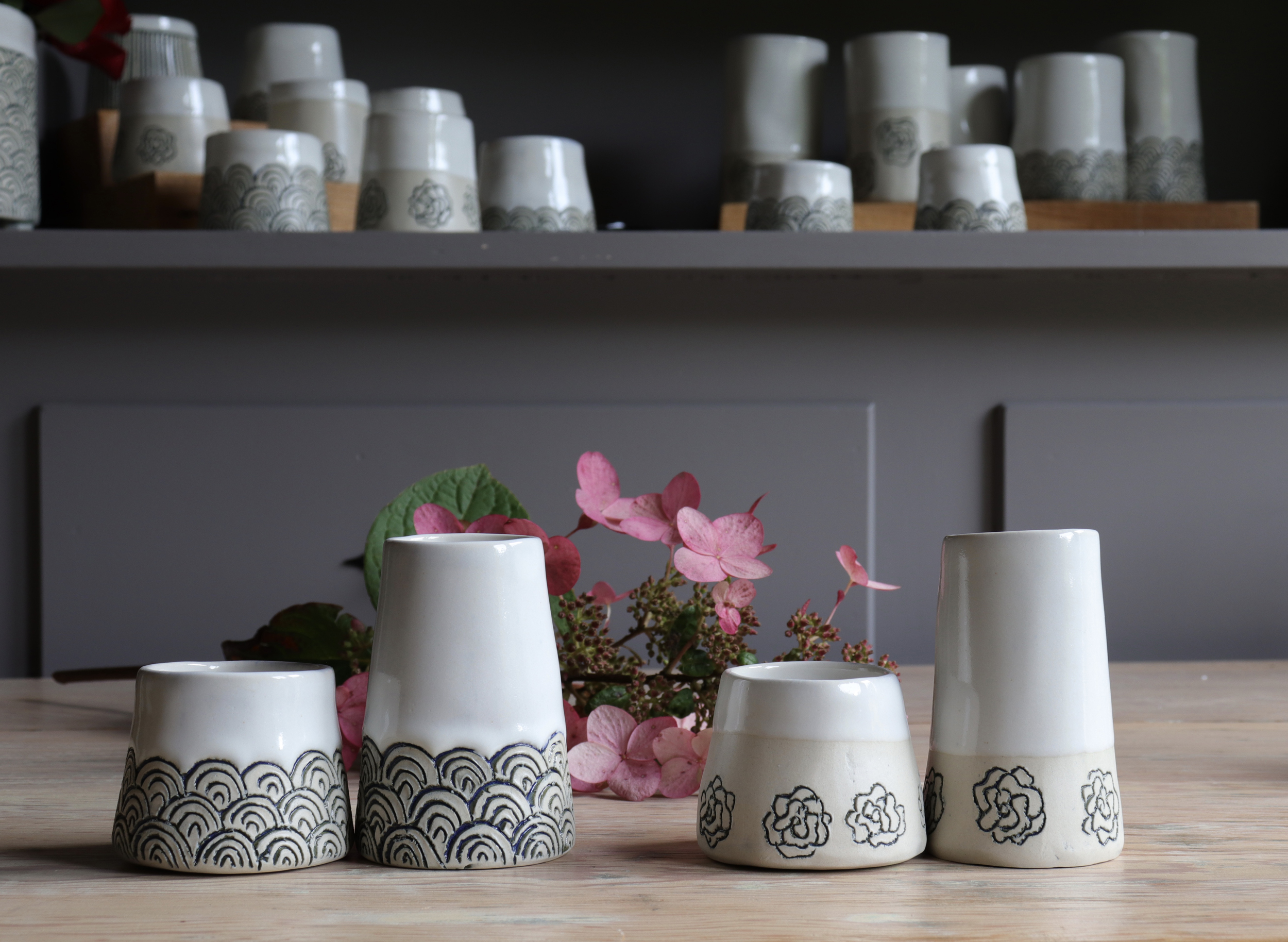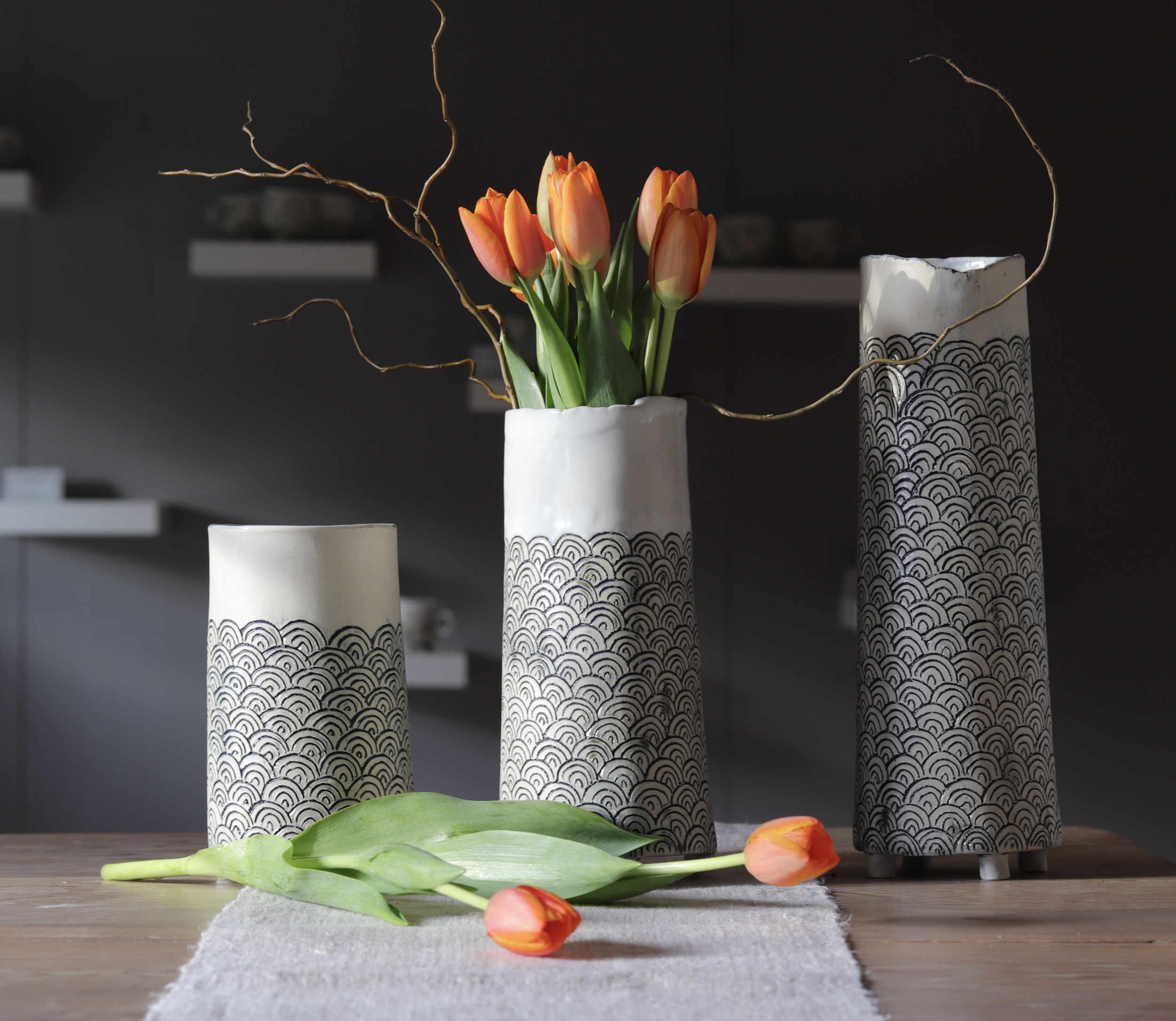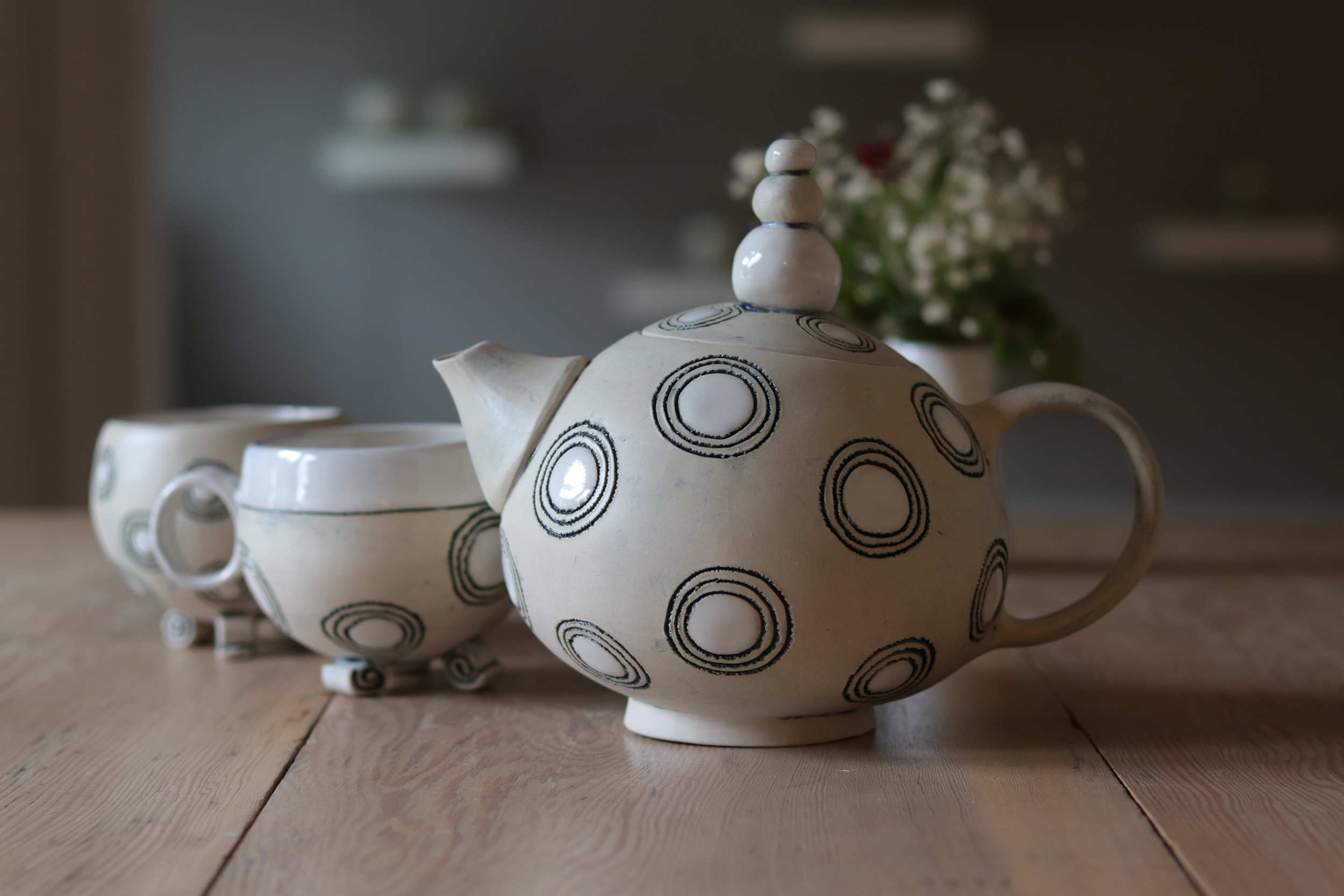Vessels of Reflection
When Margit Nellemann’s hands settle around a warmed cup of tea, her palms encompass a very long history of tradition. As both a tea maker and a ceramicist with Westholme Tea (Canada’s only commercial organic tea grower, located in Duncan), Nellemann has a unique connection to the tea leaves, grown and prepared to her taste, along with the vessel, shaped for and by her own hand.
The process of preparing tea invites slowing down. The boiling of the kettle can’t be hastened, the steeping of the tea leaves won’t be rushed. Even Nellemann’s process in constructing her ceramics commands time, each vessel built up slowly by hand using the slab or coiling technique. This is the oldest way of working with clay, and in contrast to throwing a pot on a wheel, results in a vessel that feels distinctly handmade. The imperfections in the teaware provide us an opportunity to reflect, to cultivate a moment of mindfulness.

Here is where you see the artists’ signature in the clay: consider the weight of the cup in your hand, the specks of dust that settled visibly into the glaze before kiln firing, or the irregular shape of this vessel that could only be made tangible by another human. Then let the aroma of the tea wash over you like a weighted blanket. This is where peace may find you for a beautiful moment, and why the tea ritual can be such a healing experience.
There is a reverence to the tea ritual that allows us to notice the beautiful catastrophes happening all around us, to see that life and beauty is inherently fleeting. We can connect more deeply with this experience when we pare back the noise, sit down and listen.
Cradle the teacup and notice the shapes that could only be created by the manipulation of an artist’s fingers, the subtle scratches in the clay from a falling tool, or the dramatic surprise of a glaze reacting differently than expected. Watch the unfurling of the tea in the water, the depth of colour when it’s fully steeped. When we simplify the environment we’re in, we can more deeply consider the objects we sit with, and tune in to the healing practice of mindfulness.
If you consider that the imperfections in the handmade vessel can bring you closer to an authentic experience of the ritual, then the absence of a tea bag will edge you ever closer to the origins of the tea itself. Nellemann is a proponent of loose leaf tea as a means to cultivate a greater appreciation for craftsmanship in growing tea and connecting you to that grower.
“Loose tea connects you to the source, the nature, where it’s from. You see the tea, that leaf, and know that it’s been grown by someone,” notes Nellemann. “Take the time to enjoy that.”
 If the vessel tells a story, it may well be an allegory for the human condition. We’re flawed, which is not only part of our journey, but essential to our charm.
If the vessel tells a story, it may well be an allegory for the human condition. We’re flawed, which is not only part of our journey, but essential to our charm.
“We’re not all perfect,” muses Nellemann. “I want this to be reflected in the vessel as well. We’re all different little beings...I’d like for us to be able to celebrate that.”




